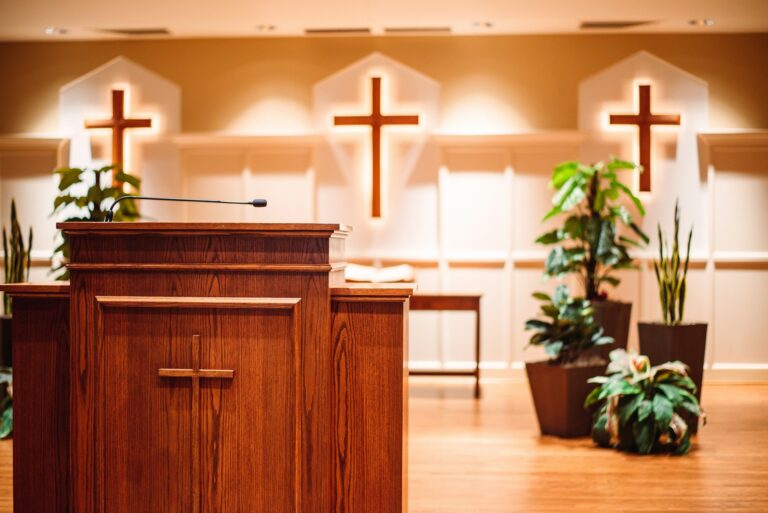I was twenty-seven years old when I was diagnosed with Type-1 Diabetes. You would think that my age would have made it a little less scary, but it didn’t.
Fear
I remember one night, after a few years of having diabetes, I had to call a friend to come over to put another needle in my stomach, because for whatever reason that night I couldn’t overcome the fear of doing it myself.
A few years after that I sat in a small hospital office with my two diabetic nurses and for no real reason apart from the haunting weight of it all, I wept. I was overwhelmed.
That day they sent me home with a stuffed bear as comfort. That is embarrassing to even write! A thirty-something year old, leaving the hospital with a stuffed animal. But diabetes was and still is scary for me. Even just saying the word is too much sometimes. Couldn’t they have chosen a name that didn’t have “Di” in it. Maybe that would make it a little bit better. I wouldn’t have to think about death every time someone mentioned it.
Exhaustion
It is exhausting too. Picking up prescriptions, checking levels, counting carbs, changing sites, and on and on and on. I think about it every hour, if not every few minutes, because I have to, in order to keep my body working properly. You know, sometimes I find myself calculating in my head how many finger pricks and stomach pokes I have left before eternity. Maybe that sounds morbid to you but that’s how tired I get of having to do these routines every day. Not that I don’t want to live, but I anticipate the day when I don’t have to bleed to do it. I look forward to that imperishable body more than I ever did before.
Loneliness
Along with just being terrifying and exhausting, it’s lonely. Because who really understands what you are going through except those who are also going through it? And how many of those people do you really even know? When I first was diagnosed, I looked around to see if there were any other Type-1 diabetics in my little world, and I found one person. She was the daughter of a man that I had worked with at a local sawmill. Obviously, I wasn’t going to reach out to her and try to unload my experience of diabetes.
So, I joined some classes. I started going to little seminars at the hospital to meet some people and learn the ropes of taking care of this disease. While I met lots of diabetics there, the classes and conversations were mostly focused on the practical. “This is how many times you should check your blood,” or “This is how many carbs a potato is,” or “What kind of sugar do you like to eat before you go for a walk?” So, the loneliness largely remained. It still felt like there was no that understood or rather no one that understood that truly knew me.
Hope
At the end of the day, it really doesn’t matter what disease you have or what kind of suffering you are going through. Whether it is diabetes or something completely different, I am sure at times (if not all the time) you have been left feeling terrified, overwhelmed, exhausted, and lonely.
Now, just to be clear from the start, I don’t have a solution for you that can make those feelings disappear and never return. Only eternity will ever do that when God will wipe away every tear, and there will be no more pain (Revelation 21.4). Not even the pain from needles will remain, because you won’t need needles anymore! As Sam Gamgee so perfectly put it in his question to Gandalf at the end of the Lord of the Rings series, “Everything sad [is] going to come untrue.”[1]
And yet, I have come to realize that there is great hope for us on this side of eternity that we do not have to be ruled by those feelings as the permanent byproducts of our suffering, but instead that we can have peace, rest, comfort and joy in Christ to a degree that the unbelieving world would struggle to comprehend.
Oil Rigs
Long before I ever became a diabetic, after I had just graduated from high school, I took a job in Northern Canada working on the oil rigs. Rig jobs tend to have a bit of a daunting reputation, but I thought, “I am used to hard work; I like cold weather; I don’t mind isolation; this will be an easy way to make some money before college.” Before I left for my first two-week stint on the rigs, I went to the gear store and bought, and I am not joking, minus one-hundred-degree celsius rated boots. They really do make those!
Then I packed up my Chevy Cavalier and I headed North. The boots came in handy because it ended up being so cold that the other workers wouldn’t even shut their vehicles off. They would let them idle all shift. Then they would drive back to the motel and let them run all night. They even kept them running while they fueled them back!
But the cold wasn’t bad. Again, I was dressed for it. And the work wasn’t so bad either. I spent most of my days just running around with a steam hose trying to keep all of the moving parts from freezing.
In the end, the hardest part turned out to be the other people on the rig.
If you have ever watched Armageddon, maybe you have a general sense of what the typical rig worker is like. Remember Bruce Willis’ character? This tough, gruff, burly, no-nonsense, blue-collar oil driller. That’s actually not far off. Let me put it like this, I don’t think most oil rig workers are going to be getting hired as kindergarten teachers or Walmart greeters.
Now picture me going into a big tight-knit group of Bruce Willis in Armageddon type guys. A pasty, eighteen-year-old, five foot five, one hundred twenty-five-pound introvert. To say I got chewed up would be an understatement.
I am turning forty next month and I would still be moderately afraid to run into any of the men I worked with. While I got bullied a little bit in high school, the oil rigs were at another level, especially because there was nowhere to escape. I was in Northern Canada! All that to say, my season on the oil rigs made for the loneliest moments of my life. And at the same time, it made for some of the most peaceful, most comforting, most joyful, most faith-building and foundational times of life. Let me tell you how.
Bible
I had my Bible. I had no friends up there; no family up there; no smartphone or computer up there. I just had clothes, a sleeping bag, a discman, my boots and my Bible. I wasn’t a thriving Christian at the time, but I was a Christian. So, my Bible came with me to the rigs. And when I had nowhere to go, and no one to turn to, I opened it up.
I went to God’s Word and leaned in. I went looking for help, looking for some kind of shelter from the storm. And that is exactly what I found. You know what my days turned into when I started turning to the scriptures? When I began looking to God for strength? Work and Bible. Work and Bible. Work and Bible. I couldn’t stay away from His Word, because the more time I spent in it, the more my situation and my daily experience were transformed.
All of a sudden I was finding myself sitting in the crew truck on the way from the motel to the rig, taking shots from every direction just like any other day, but now overflowing with joy as I thought about the promises of God that I had just read a few moments before.
It wasn’t that the words on the pages of my Bible were just magically transforming me, but that God was revealing to me through them, deeper and unseen realities, and those realities were doing the transforming. I thought I was alone up there. I thought I was suffering alone. But what I didn’t realize was that God was with me in my suffering! “The LORD is near to the broken-hearted and saves the crushed in spirit” (Psalm 34.18). I thought I was in need. I thought I needed to get off of the oil rigs; that I needed a different job and a safer place. But what I didn’t realize was that all I really needed was Jesus and that He was enough! “But he said to me, “My grace is sufficient for you, for my power is made perfect in weakness” (2 Corinthians 12.9).
I thought that what was necessary for my faith in Jesus to grow and to thrive was a cozy and comfortable life. But what I didn’t realize was that suffering was a blessing and a growth hormone to my faith. “Indeed, we felt that we had received the sentence of death. But that was to make us rely not on ourselves but on God who raises the dead” (2 Corinthians 1.9).
Christ Is All You Have
During World War II there was a young Dutch watchmaker named Cornelia (or Corrie) ten Boom. Corrie along with her family, helped hundreds of Jews escape the holocaust. Safe to say, she was an incredible woman and a radical disciple of Jesus. There is a quote that has long been attributed to Corrie that goes like this, “You can never learn that Christ is all you need, until Christ is all you have.”[2]
Is that not what you have found in your hardest moments?
That when you have nothing, Jesus suddenly becomes everything you need. That is what I found on the oil rigs. No time ever forced me to depend on Christ more than when I was bullied and alone in the Northern Canadian tundra. It brought me to make my home in the Scriptures because I had nowhere else to go. And the result of the surrender forced by my situation was the most peace, the most comfort, the most joy and the most intimacy with Christ that I had ever known.
You know, I have always loved the way Karl Barth, the old Swiss Theologian, used to translate the word blessed. When he came to the beatitudes in Matthew’s Gospel, he determined that the best phrase to convey the amazing privilege that was bound up in that word was to say before each beatitude, “You lucky bums.”[3]You lucky bums, you who are poor in Spirit, for yours is the Kingdom of heaven (Matthew 5.3). You lucky bums, you who are mourning, for you will be comforted (Matthew 5.4).
In other words, you are right where you need to be. Today, if you’re a Christian and a diabetic, or a Christian with any other kind of illness, sickness or struggle, I think that those are fitting words for you: “You lucky bum.” Lucky because your suffering is putting you in the perfect position for Christ to become everything, and there is no better place to be than that.
[1] J.R.R. Tolkien, The Return of the King, (Boston: Houghton Mifflin Company, 1955), 430.
[2] Corrie ten Boom, https://the-resting-place-devotional.com/2022/01/20/corrie-ten-boom/ (Accessed July 26, 2024).
[3]Karl Barth, The Christian Life: A Theological Introduction, translated by Geoffrey W. Bromiley (Eerdmans, 1967), 101.
























